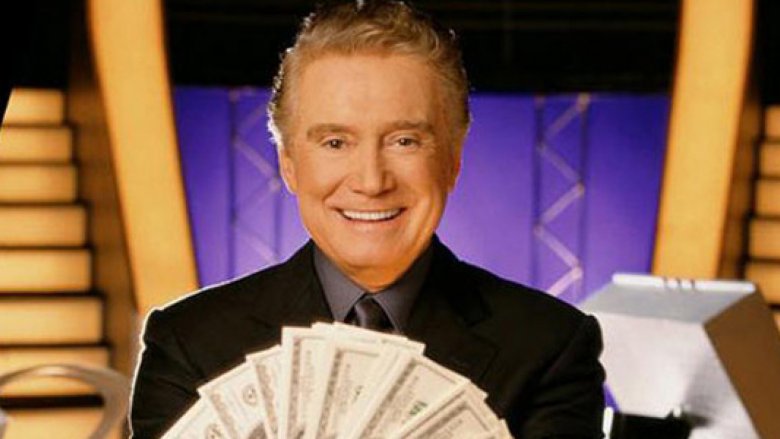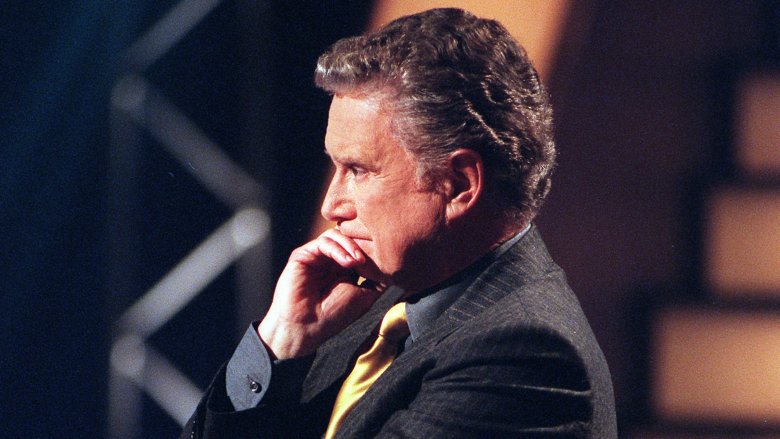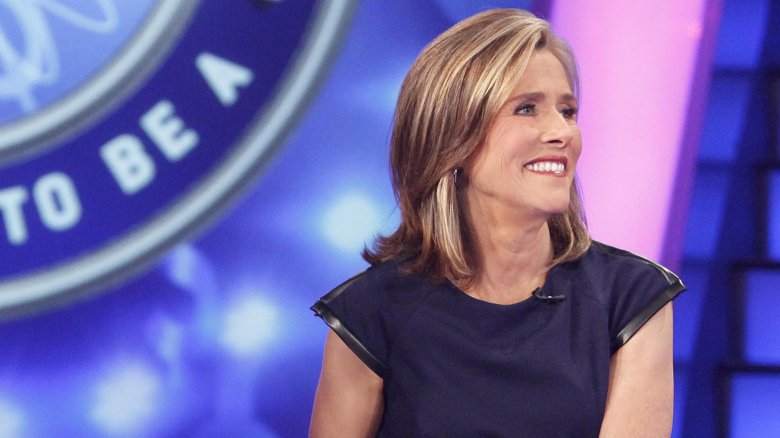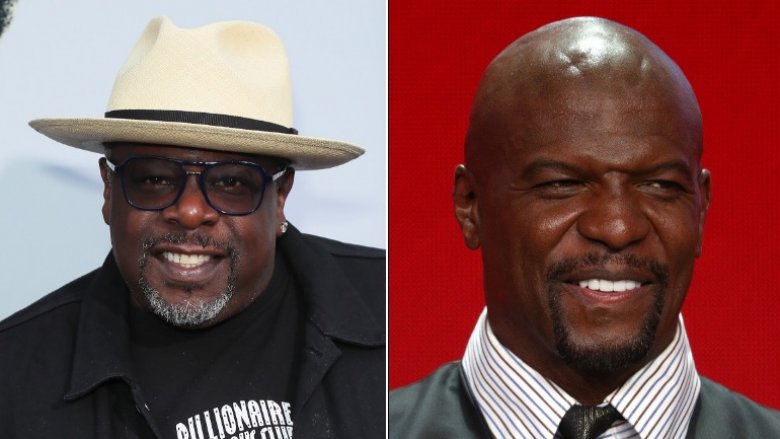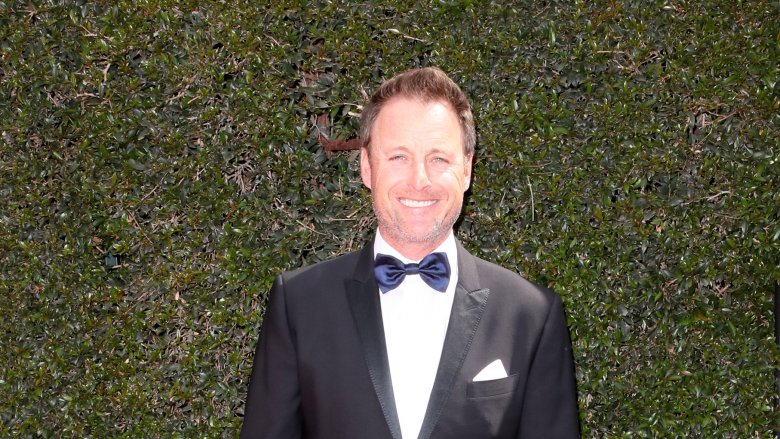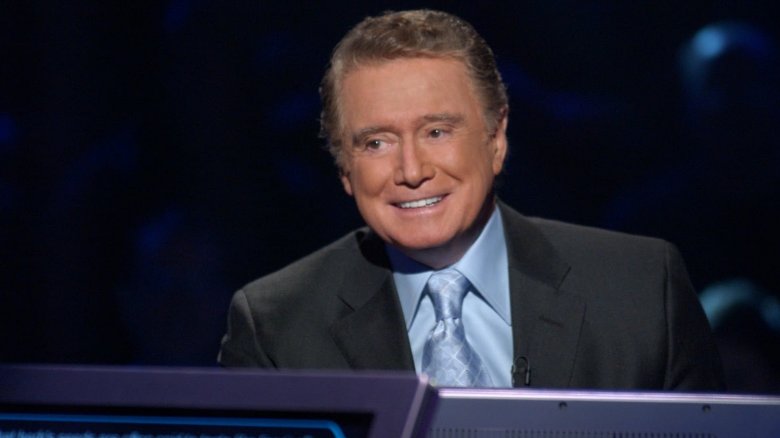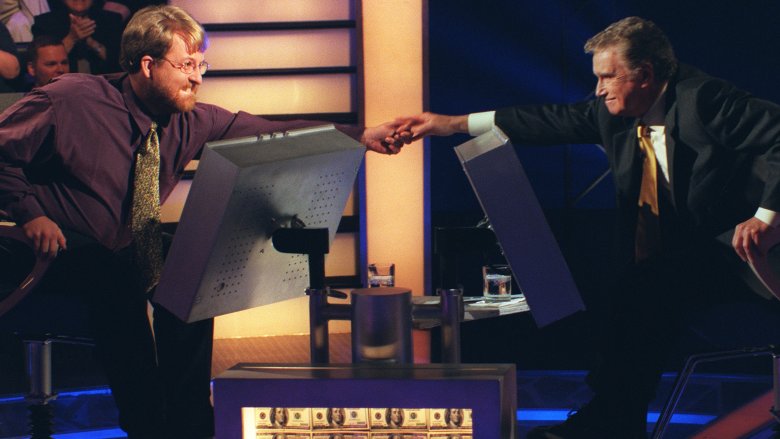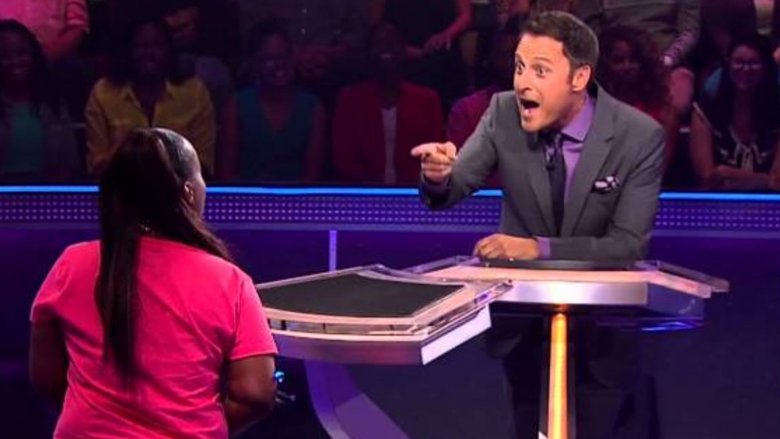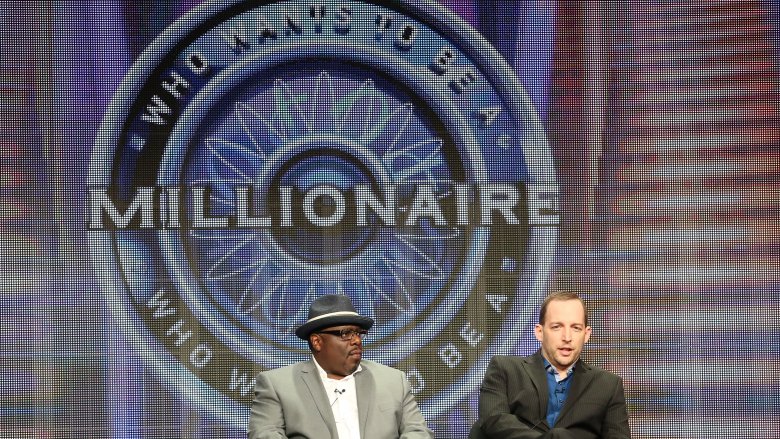The Real Reason Who Wants To Be A Millionaire Was Canceled
Originally a hit British game show with the same name, Who Wants to Be a Millionaire was imported to American audiences in 1999 — and at first, they couldn't get enough. The built-in tension as host Regis Philbin uttered the now-iconic phrase "Is that your final answer?" kept audiences coming back for more, several times a week.
Each hourlong episode was unique, featuring anywhere from one to half a dozen contestants selected from the studio audience vying to win the ultimate prize. This element of surprise kept the show fun and edgy, while the production, complete with music that mimicked a human heartbeat, put the contestant in an almost literal hot seat.
But when Millionaire went into syndication in 2002 and Philbin was replaced by Meredith Vieira — and the runtime cut to fit a 30-minute timeslot — viewers slowly started tuning out. Who Wants to Be a Millionaire aired its last episode on May 31, 2019, ending its run with a surprising lack of fanfare for a show that had been an American pop culture staple for 20 years. Why was Millionaire canceled, though? Let's explore.
Regis Philbin's final answer
Before becoming the first and most widely remembered host of America's Who Wants to Be a Millionaire, Regis Philbin was already a household name. Long before his show Live! With Regis and Kathy Lee brought him new mainstream fame starting in the late '80s, Regis had been working in show business both in front of the camera and behind the scenes since the 1950s. In fact, Regis was on the air so much during the course of his career that the Guinness Book of World Records inducted him on September 15, 2011 for Most Hours on U.S. Television, with a grand total calculated at 16,746.50.
Regis was only with Millionaire from 1999 to 2002, but for many viewers, the show's catchphrase "Is that your final answer?" always sounded best in his distinct New York accent. The phrase was a carry-over from the British version of the show, but Regis made it entirely his own and American audiences ate it up. His charisma and audience familiarity with his past work was one of the big draws in the primetime years of Millionaire, winning him a Daytime Emmy for Outstanding Game Show Host in 2001. Regis was also reportedly one of the highest-paid game show hosts, raking in an estimated $300,000 an episode. Although Millionaire's ratings were already on the decline before Philbin left the show, his departure didn't help.
A new era
Meredith Vieira may not be the name that first comes to mind when thinking about Millionaire hosts, but she was the longest in the role. From 2002 to 2013, Vieira led the show (and uttered that famous catchphrase) even though Millionaire was in syndication rather than prime time. Vieira had inherited a show that was on the rocks even with popular Regis at the helm, making it all the more impressive that Millionare clung on for so long. The format of the show stayed the same until 2008, with the exception of taking up a 30-minute time slot rather than the full hour of Millionaire on primetime. Even as the popular show struggled with its inconsistent time slots during the week around the country — one of the banes of syndication includes the show airing at different times on different stations depending on where you live — Vieira still went on to win two Emmys for Outstanding Game Show Host.
Like her Millionaire predecessor, Vieira had a long career in front of the camera. Starting in the mid-'70s as a TV news broadcaster, she established herself as an investigative journalist for programs such as the acclaimed 60 Minutes. She moved to ABC in 1994 as a correspondent for shows like The View until she became Millionaire's longest-running host. She left Millionaire to star in The Meredith Vieira Show, her own daytime talk show, but it was canceled after just two seasons.
A period of change
When Meredith Vieira left Millionaire to headline her own series, the show struggled to find a new host that would stick. Comedian Cedric the Entertainer hosted for one year before citing a location shift to Connecticut as untenable due to other projects he was simultaneously pursuing. Ratings had increased under his more stand-up comedy host style, making it the highest-rated syndicated game show in 2013. By 2014, Millionaire's viewership had increased by an impressive 14 percent, one of its highest increases in years. Even so, Cedric's catchphrase "Watch your wallet" never rose to the level of "Is that your final answer?"
Cedric the Entertainer's success as host prompted the studio to tap another comedian, beloved Brooklyn Nine-Nine star Terry Crews, for the role. Ratings continued to rise under his watch as his exuberant comedic stylings resonated with audiences; unfortunately, Crews also only lasted one year as host, citing his ever-growing list of creative projects, including a new career in publishing, for his exit.
From Bachelor to Millionaire
After Terry Crews' tenure as Millionaire's emcee, Chris Harrison, the host of The Bachelor, Bachelor in Paradise, and The Bachelorette, took over the mantle for the next four seasons, sticking around until Millionaire's last episode. ABC banked on Harrison's familiar face to their audience as well as his hosting experience to bring back the consistency that had been lacking since Vieira's departure. With Harrison's entrance in 2016, Millionaire saw an 8 percent jump in viewership by mid-season, which also signaled a ratings high for his first season. Ratings slowly rose each year of Harrison's tenure, including when the show relocated to Las Vegas.
Chris Harrison, incidentally, is the closest thing to a controversial figure in Millionaire's 20-year run. Harrison's show Bachelor in Paradise was mired in scandal in 2017 after news of a non-consensual sexual encounter between contestants came to light. The show was suspended for the duration of the investigation, returning still helmed by Harrison. Could his marginal involvement in a scandal have contributed to people tuning out of Millionaire? Jury's out on that one, but it's certainly possible.
More options for viewers
With so many people metaphorically cutting their cable cords in favor of streaming services like Netflix and Hulu, quiz shows like Millionaire have been forced to compete with hundreds of binge-ready shows and original content available on a slew of platforms. Compared to other popular game shows like The Great British Bake-off and Drag Race, Millionaire's format suddenly felt dated. And because of the shifting hosts — a game show is nothing without that personality at the helm to steer it on course — it became harder for audiences to engage. Ironically, Who Wants to Be a Millionaire actually teamed up with Netflix in 2006 for "Million Dollar Movie Week" during which all the questions tested film knowledge, and the contestants received a free year of Netflix.
The success of Cedric the Entertainer and Terry Crews' runs injected some new life into Who Wants to Be a Millionaire, but their tenures only helped boost the show in the short term, and many viewers had jumped ship already. When the show's cancellation was announced, many former viewers didn't even know the show had continued past Regis Philbin's run as host. Yikes.
Technological complications
Millionaire ended up getting rid of some of the show's most popular audience interaction elements once the internet became a household presence. The showrunners were forced to get rid of the Phone-A-Friend and other similar lifelines because people could too easily look up answers on the web. Everyone wants to be a millionaire, yes, and lots of people also want even their few minutes of fame on television, no matter how small. Eliminating this interactive aspect of audience participation might have alienated viewers and participants alike, especially since there was no replacement gimmick that filled a similar purpose. The Ask the Expert lifeline allowed contestants to ask a sequestered jury of three backstage for the correct answer, but this wasn't as dynamic for audiences who enjoyed being able to participate. Jump the Question, which allowed contestants to skip a challenge, was likewise a lukewarm addition that added no potential human drama to the show.
Everyone wants to be a millionaire, but nobody's winning
Only 12 people ever won the top prize on Who Wants to Be a Millionaire, and half of them were in the first primetime season, when the questions were supposedly easier. Millionaire's insurance company, Lloyd's of London, even sued ABC for "unacceptable losses" because they believed the network wasn't asking challenging enough questions for that huge final win. Over 20 years, and hundreds of episodes and contestants, only a very small fraction ultimately won the coveted prize. The last person to win the jackpot in the U.S. took the prize home in 2009, half the show's run ago.
Of course, even if a contestant won the full $1 million, they still wouldn't actually be a millionaire after taxes. At best, they'd walk home with roughly $600,000, which is still more than enough to change an entire family's future, but doesn't actually make them a member of the millionaire club.
Ask the dwindling audience
With an average of 16.2 million people tuning in each night according to E! News, Millionaire's first season in 1999 singlehandedly blew ABC's closest competition out of the water by almost 3 million viewers each day. Even though the show came under criticism for airing too many ads, especially in the season finale — Ad Age reported only two minutes of show time in the final ten minutes — viewers weren't deterred, at least in the beginning.
A 2000 Gallup poll reported that 74 percent of Americans had watched Who Wants to Be a Millionaire, and these results held across racial and economic demographics. But as the years went on, ratings ended up dropping and spiking repeatedly without ever coming close to matching the first and second seasons. By 2019, Millionaire was averaging only 2.24 million viewers per episode, which is an enormous drop in audience engagement.
All good things come to an end eventually, unless you're a Law & Order show
Ultimately, Who Wants to Be a Millionaire spent 20 years on the air in America and came to its natural conclusion. Entertainment news outlet Broadcasting Cable speculated the show was cancelled to make room for new Disney show Tamron Hall, but this was never officially confirmed by the network or showrunners. The positive for Who Wants to Be a Millionaire is that there was no scandal or controversy behind the cancellation, just inconsistent viewership numbers and a format that was no longer as interesting to audiences with so much else on TV — including a number of other shows offering an opportunity to win buckets of cash for doing far less than answering trivia questions.
Whatever finally led to studio execs making the decision to pull the plug on the show, Millionaire made a lasting impression on American pop culture — and its legacy as one of our most iconic game shows remains unsullied even in cancellation. And that's our final answer.
